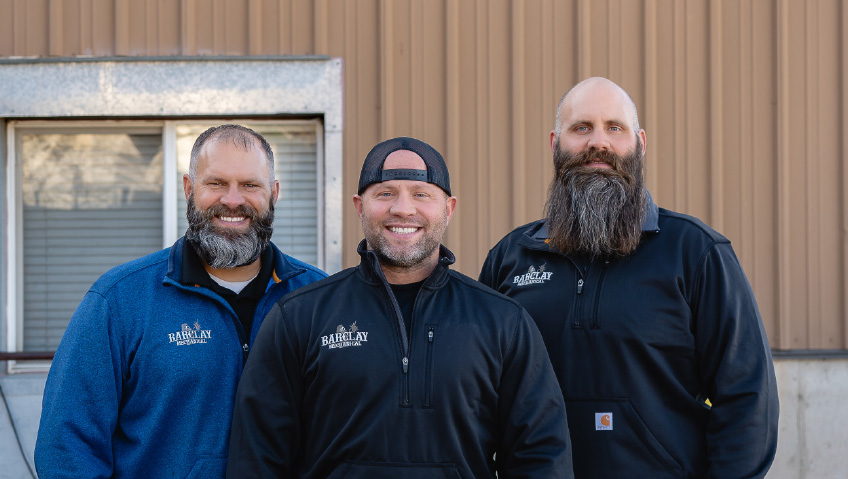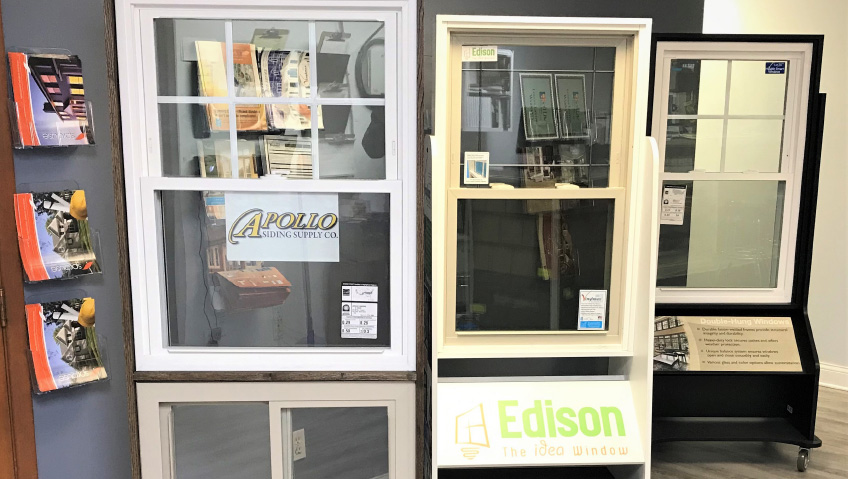Barclay Mechanical is a leader in industrial mechanical construction that is taking safety management to an entirely new level on projects across America. By becoming the positive change they want to see in the industry, and by implementing all-encompassing safety protocols, the team is proving that injuries are preventable, and that the construction industry can be a much safer, more humane place to work than it used to be. As a result, people love working here, and they demonstrate it by staying.
Big players in the oil refinery and fabrication markets turn to Barclay Mechanical for industrial construction, plant upgrades, and systems installations with many of their largest, most challenging projects.
The company specializes in metalwork like pressurized piping and structural steel, building everything from a potato processing plant in Washington to a gold plating facility in Utah; from an explosives plant linked to gold mining in Nevada to upgrades on a fiberglass production facility, airports, and many other facilities.
Based in Manti, Utah, Barclay Mechanical has always considered safety a big deal. The company has been acknowledged for its sterling safety record several times—three years in a row, to be exact. In 2020, it was one of just fewer than thirty companies honored with a Perfect Safety Record Award from the Utah Safety Council for zero recordable OSHA incidents, illnesses, or days away from work. And the winning streak continues.
For experts in the industry, Barclay Mechanical is an employer of choice. “At Barclay Mechanical, we care a lot about why we go to work. We go to work to provide for our families and give ourselves a better life. That’s why it’s a great place to work,” says Scott Barclay, owner and Chief Financial Officer.
Barclay also opens up on why the safety culture is genuinely different. When people are injured, they cannot enjoy their lives or care for their families. To establish a genuine safety culture, the company started rewarding staff for reporting safety issues instead of penalizing or pressuring them, as is the case in too many companies, according to Barclay.
“Other safety systems do offer reward systems, but they usually encourage people to hide unsafe acts. We do not want that. We reward people for reporting with the help of job safety observation (JSO) forms available on our job sites,” says Barclay.
In addition, Barclay rewards safety-positive acts. By ensuring everyone is on board with this protocol, the company and its staff reap the benefits of a solid pro-safety culture that has resulted in three years of no OSHA-reportable incidents occurring on any of its job sites.
“With the number of work hours we put in, that’s unheard of. Most people think that we’re hiding injuries. But we’re not, we’re doing the opposite, which is allowing us to stop the injuries before they happen,” says Barclay, who looks back at several negative experiences on job sites at other companies where questionable safety practices had deeply unfortunate, far-reaching repercussions.
Barclay found the heightened fear of making a mistake that he saw in new hires arriving from other firms with flimsy safety cultures unacceptable and very upsetting. Because, as he aptly notes, when workers are afraid, they make even bigger errors which cause major accidents and can cost people their lives. Barclay Mechanical drove the change. “The result is that now people work with less drama, less fighting, and with more help toward each other,” he adds.
The outcome of this has been the growth of a can-do mentality that has spread through all levels of the company. The company invests much time and resources into cross-training, encouraging personnel to take their learning outside their immediate field of expertise and create an interwoven web of knowledge amongst colleagues from which customers benefit tremendously. “Nobody stands around. Everybody’s working toward the same goal: to get things done together. This has always been our company culture,” says Barclay.
The company’s history speaks of more than four decades of tenacity. Opening its doors as Barclay Welding on January 1, 1980, it was started by Barclay’s father, Michael D. Barclay, who learned welding from his father, Daniel P. Barclay, a welding inspector at Rocky Mountain Power in Utah, today part of PacifiCorp.
The company’s big break came in 1983 when Michael developed and fabricated a custom grain seed cart favored by grain farmers, which allowed them to load the grain drill directly from bulk, instead of opening multiple bags of seed.
One contract led to another, and before the founder knew it, the company had the capital to expand. And expand it did. Its geographical footprint quickly grew, and by 1995 it was proudly completing multi-million dollar contracts for some pretty big clients.
In 2012, the next generation stepped up when brothers John Barclay, Chief Executive Officer; Kenneth Barclay, Chief Operating Officer; and Scott Barclay, Chief Financial Officer, bought the company from their father at market price.
Today, Barclay is proud of the diversification that secured the company over 500 percent growth under its new leadership. Management of its vast reach is hugely eased by the large leadership team that’s more than qualified to handle such a hefty operation.
Barclay Mechanical’s reach extends beyond business into doing a whole load of good for its entire region too. “We live in a small community because we want to and because a lot of our lead employees like the atmosphere. Because our work is everywhere, it doesn’t matter where we live,” says Barclay. “So we like to give and make it a better place to live for everybody. We always blow the budget when it comes to our community.”
Examples of the firm’s generosity are many, with significant contributions made toward a rodeo arena, a high school football stadium, and donations to every sports team that requests it, there being only a few on the list.
The company is also enthusiastic about being part of a television show, American Dreamers. On the show, start-up companies are assisted, as Barclay puts it, in “building the American Dream.”
Part of the company’s contribution to this incredible initiative is that it builds the facilities needed by start-ups to get going—sometimes at cost. It also sponsors a welding program scholarship pledged to Idaho State University and an engineering scholarship pledged to Snow College in Ephraim, Utah.
Thanks to its sizeable database of professionals, whom it ranks according to position and skillset, the company finds that not being part of a union allows it the freedom to cross-train staff in a way that lets them earn better.
The other plus is that promotions are awarded based on the knowledge and the skillful implementation of that knowledge in the field without enforcing a minimum tenure period. Those who have the necessary skills and traits can work their way up the proverbial ladder comparatively fast.
And, while the company completes impressive projects with far fewer employees than a union would demand, its safety achievements are proven, its salaries are mostly higher than average, and it delivers faster on projects, according to Barclay.
“Almost every one of our employees is paid well above market average,” he says. “Because we ask a lot. And we want them to know that it’s appreciated so we pay accordingly,” he says.
The company’s overall approach toward its people has reaped rewards. He continues: “We’re proud of everything we do. We don’t go to work just to work, we go to work to build the future. People work a lot differently when they know that. Things get built better,” Having a collective eye on the bigger picture is part of what drives this success.
There have been many successes over the years. Recently Barclay did all the piping installations as part of a huge upgrade for HF Sinclair. This project demanded a complete shutdown of its plant as around one hundred Barclay Mechanical professionals stepped in to make this overhaul possible.
The amount of work on this project was massive, calling for ‘round-the-clock labor. “We beat their schedule and their budget. In an oil refinery, that’s unheard of and the customer was very, very happy,” says Barclay.
An impressive project currently on the go is a fiberglass installation for Owens Corning, well-known roofing and insulation giant. The company is busy relocating its California operation to Utah, and the Barclay Mechanical team is taking care of piping and a portion of the structural steelwork. So far things are going well and we look forward to following up on the results. The company has also completed several memorable projects for Hammon Plating, Inc. and Southwestern Energy in Utah.
The industry as a whole continues to grow, and Barclay points out that it can be a very lucrative one. “Our welders and fitters make six digits and our superintendents make a quarter of a million dollars a year, or more. We value our people,” he says. For Barclay, replacing people is not a solution to problems. Instead, the company’s leadership team prefers to adapt to ensure that everyone feels valued so that employees can grow together.
There are opportunities for staff to continue their education, both on and off-site. “People can weld unlimited hours for free to practice after hours. They use our equipment and our metal and welding rods, and they have a very knowledgeable teacher there,” says Barclay.
Passionate to its core, the Barclay Mechanical team continues to drive excellence through true craftsmanship. As its strategic growth has been spurred by favorable market conditions the company is close to doubling in size.
“We turn down more work than we take; we built that reputation. But we do not grow faster than we can [sustainably], or else we will fail,” he says. To ensure a promising future, the company is welcoming people who share its culture and exemplify the leadership qualities that have brought it so much success.






